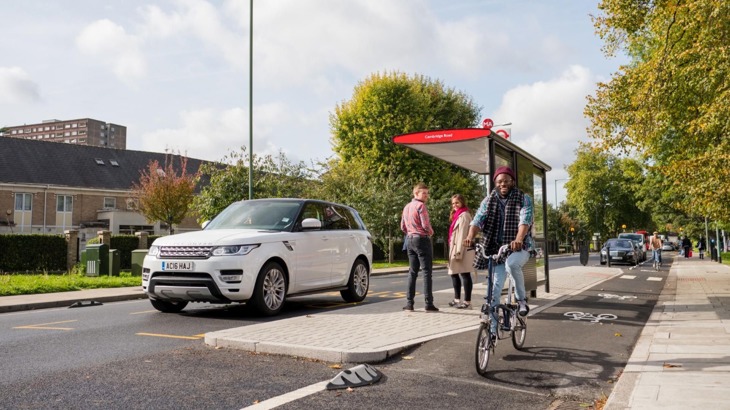The ways that we move around are highly complex. How we make decisions about the routes we elect to use, and the destinations that we need to reach or that we choose to visit, serve to influence where and how traffic flows. Add to this more personalised factors about the ways that we drive and times we need or prefer to make trips, and we see a hugely complicated matrix of factors that determine where congestion builds.

Given the complexity of the equation, there are strong grounds to wonder whether we understand traffic well enough to intervene to alter the road network effectively. And crucially, what does ‘effectively’ mean in this context? Are schemes which aim to make car journeys quicker and easier sensible given the damage that our over-reliance on cars is doing to the environment and to society?
This blog is a response to two Highways England reports concerning the impacts of road ‘improvement’ schemes.
The first report is about the ‘pinch points’ programme. Coverage of the report included headlines such as ‘England traffic jams 'worse' despite congestion schemes’. This report is a review of a series of evaluations of road schemes that were intended to support economic growth and to improve congestion and safety outcomes. The report covers evaluation work conducted early after the changes were made – before the schemes are ‘mature’.
But there is already strong evidence that the schemes are not delivering in the way that was intended. Some improvements in congestion during peak hours are offset by further delays during other periods. Safety outcomes are more positive, although the removal of outliers arguably puts a more positive light on this result than is warranted.
The second report is a summary of evaluations of 85 major schemes. Major schemes tend to involve very costly new road construction or significant engineering measures. The report suggests that the planned outcomes of the major schemes are largely met.
However, there is some richer context to this. On the one hand, the accuracy with which adverse outcomes are forecasted is lauded – knowing the extent of the damage being caused by a road scheme doesn’t feel like a cause for celebration. On the other hand, the inaccuracy of traffic and cost forecasts is very clear.
This point about forecasting traffic levels, and the implication for what this shows about our understanding of the impacts of the measures that are being implemented to support travel by car, are a real cause for concern. The challenges of forecasting are numerous and complex. But the fact that we are not doing it well suggests that we really don’t understand the implications of the changes that we are making to the road network.
In an era where the problems that car traffic poses are better understood than ever before, should we really be investing on this scale in an attempt to make it easier for people to drive further, faster and more frequently?
A recent briefing paper by Transport for Quality of Life for Friends of the Earth makes a strong case for how the planning system can be used to reduce the need for car travel. In particular, the report makes the point that ‘The expansion of road networks around towns and cities only leads to a vicious cycle of more settlements on the periphery, more roads, and further sprawl’. The implication is that the current investment in roads is ‘locking-in’ damaging behaviours by facilitating more travel by car.
More forthrightly, an argument recently presented states that ‘Cars are killing us. Within 10 years, we must phase them out’. The author states that ‘Transport should be planned, but with entirely different aims: to maximise its social benefits while minimising harm… accompanied by a steady closure of the conditions that allow cars to rampage through our lives’.
Both reports pick out a myriad of reasons why the car is causing so much damage, and the former at least makes clear and constructive suggestions for alternatives to investing to support car travel.
The huge programme of investment in roads that supports more car travel could and should be reoriented to offer solutions to current economic, health and wellbeing, social justice and environmental challenges.
Our work is all about supporting positive outcomes across the domains of economy, health and wellbeing, social justice and environment, and about offering alternatives to car use for the trips that people want and need to make.






